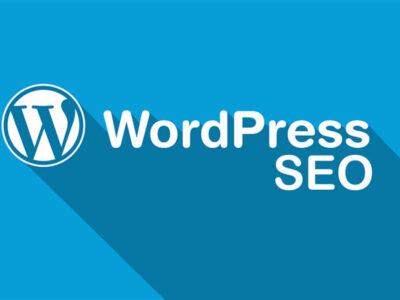In the vast and ever-changing landscape of the blogosphere, where trends come and go, one question persists: Are the laws of SEO still relevant to today’s blogging?
Are the Laws of SEO Still Relevant?
As a passionate blogger who has witnessed the evolution of the digital realm, I embark on a storytelling journey to explore the enduring impact of SEO on the world of blogging.
Drawing from personal anecdotes and experiences, I shed light on the dynamic relationship between SEO and the art of blogging in the present day.
Discovering the Power of SEO
In the early days of my blogging journey, my focus was solely on crafting engaging and insightful content.
SEO seemed like an enigma, and its relevance was unclear to me. However, as my blog grew and I yearned for greater visibility, I delved into the world of SEO.
It was then that I discovered its transformative power in driving organic traffic, expanding my reach, and connecting with a larger audience.
The Evolution of SEO Tactics
Over time, I witnessed the evolution of SEO tactics. Keyword stuffing, once a common practice, gave way to a more nuanced and holistic approach.
As search engine algorithms became more sophisticated, it became crucial to create high-quality, user-centric content that satisfied both readers and search engines.
Keywords were no longer the sole focus; factors like user intent, mobile optimization, and site speed became key considerations.
Content Relevance and Value
In the modern blogging landscape, content relevance and value remain paramount. While SEO techniques may have evolved, the fundamental principle of creating valuable content for readers has not changed.
As a blogger, my goal is to provide insightful, well-researched, and engaging content that caters to the needs and interests of my target audience.
SEO serves as a guiding force, ensuring that my content reaches the right audience and offers them the value they seek.
The Role of Keywords in Blogging
Keywords continue to play a crucial role in blogging, but their usage has evolved. Gone are the days of cramming as many keywords as possible into a blog post.
Instead, strategic keyword research and placement are essential. By understanding the language and search queries of my audience, I can identify relevant keywords and integrate them naturally into my content.
This enables search engines to understand the context and purpose of my blog, leading to higher visibility in search results.
User Experience and Blog Optimization
In the age of user-centric design and seamless browsing experiences, blog optimization goes hand in hand with SEO.
Ensuring that my blog is easy to navigate, visually appealing, and accessible across devices enhances the user experience.
Optimizing site speed, using responsive designs, and organizing content through proper headings and formatting are vital for both user satisfaction and search engine rankings.
The marriage of user experience and SEO creates a harmonious environment that benefits readers and bloggers alike.
The Rise of Social Media and SEO
The advent of social media has revolutionized the way content is shared and discovered.
As a blogger, I’ve witnessed the symbiotic relationship between social media and SEO. Social media platforms provide an additional avenue for promoting my blog and attracting a wider audience.
By incorporating SEO principles into my social media strategy, such as using relevant keywords and optimizing post captions, I can leverage these platforms to drive traffic to my blog and enhance its visibility.
Analytics and the Power of Data
In the modern blogging era, data has become a powerful tool for understanding audience behavior and optimizing content.
Analytics platforms provide insights into user engagement, traffic sources, and popular blog topics.
By diving into these metrics, I can identify patterns, understand what resonates with my audience, and tailor my in the modern blogging era, data has become a powerful tool for understanding audience behavior and optimizing content.
Analytics platforms provide insights into user engagement, traffic sources, and popular blog topics. By diving into these metrics, I can identify patterns, understand what resonates with my audience, and tailor my content strategy accordingly.
SEO plays a vital role in harnessing the power of data. By tracking keyword rankings, click-through rates, and conversion rates, I can evaluate the effectiveness of my SEO efforts. This data helps me refine my keyword strategy, optimize underperforming pages, and identify new opportunities for content creation.
It’s a constant feedback loop that allows me to adapt and improve, ensuring that my blog remains relevant and impactful.
The Changing Landscape of Search
As the digital landscape evolves, so do search engines and their algorithms. While the core principles of SEO remain relevant, the tactics and strategies must adapt to these changes.
Voice search, artificial intelligence, and mobile-first indexing are just a few examples of the shifts that influence SEO in the modern blogging landscape.
Voice search, in particular, has emerged as a game-changer. With the rise of smart speakers and voice assistants, optimizing content for conversational queries has become crucial.
Adapting to this trend by crafting content that answers specific questions and employs natural language has helped me capture voice search traffic and stay ahead of the curve.
SEO and Blog Monetization
For many bloggers, monetizing their blogs is a key objective. SEO plays a pivotal role in this endeavor as well. By optimizing my blog for relevant keywords and improving its search engine rankings, I can attract more organic traffic, increase ad impressions, and drive revenue.
Additionally, SEO helps me target specific niches and attract the right audience for sponsored collaborations, affiliate marketing, and other monetization strategies.
The Importance of Adaptation and Balance
While SEO remains relevant in today’s blogging landscape, it’s important to strike a balance.
A singular focus on SEO can lead to overly optimized content that lacks authenticity and fails to connect with readers.
It’s crucial to remember that blogging is ultimately about building relationships, fostering engagement, and providing value.
Adapting to SEO best practices while maintaining my unique voice and style has been key to my blogging success.
I prioritize crafting high-quality, informative, and engaging content that resonates with my audience. By striking the right balance between SEO and creativity, I can enhance the visibility of my blog while staying true to my authentic voice.
Embracing the Power of SEO in Modern Blogging
In conclusion, the laws of SEO are indeed still relevant to today’s blogging landscape.
As a blogger, I have experienced firsthand the profound impact that SEO can have on organic visibility, audience engagement, and blog monetization.
While SEO tactics have evolved, the core principles of delivering valuable content, understanding audience intent, and optimizing for search engines remain unchanged.
By embracing SEO, I have been able to navigate the ever-changing digital realm, attract a loyal readership, and achieve my blogging goals.
SEO has provided me with the tools to enhance the user experience, leverage data-driven insights, and adapt to emerging trends. It is an indispensable ally that continues to shape and empower the art of blogging in the present day.
So, fellow bloggers, I encourage you to embrace SEO as a powerful tool in your blogging journey. Learn its principles, stay updated with industry trends, and strike a balance between optimization and authenticity.
By harnessing the enduring laws of SEO, you can propel your blog to new heights of visibility, engagement, and success in the modern blogosphere.
Discover more from Digital Wealth Guru
Subscribe to get the latest posts sent to your email.










[…] is a search-driven platform, making keyword research a vital component of your blogging […]